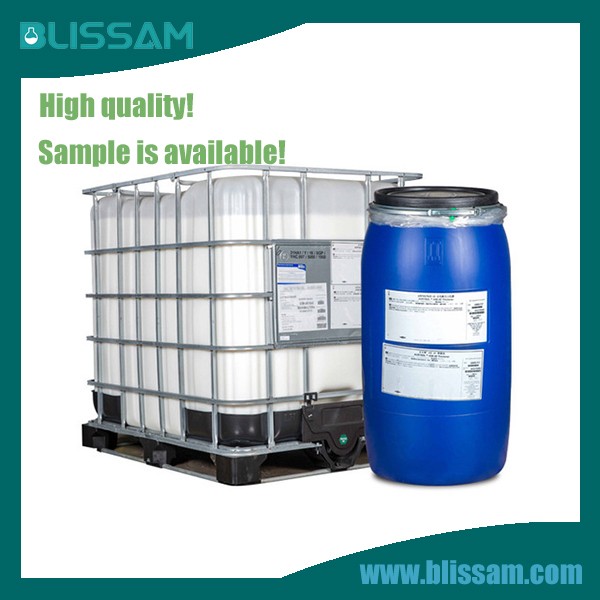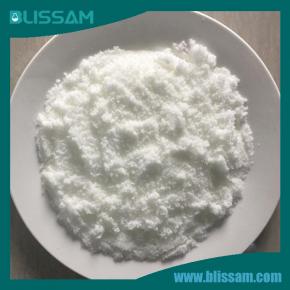Silicone resins have gained prominence in a wide variety of industries due to their unique properties, including thermal stability, weather resistance, and excellent electrical insulation. Whether used as coatings, adhesives, or additives in paints, silicone resins are integral to many high-performance applications. Understanding the various types of silicone resins, their applications, and how to choose the right one can be essential to optimizing product performance.
At BLISSAM, we specialize in the development and production of high-quality silicone resins tailored to meet the needs of various industries. This comprehensive guide provides an overview of silicone resins, explores their types, and offers insights on how to choose the most suitable option for your application. We’ll also compare BLISSAM products with those of competitors to demonstrate why our solutions lead the market.
Silicone resins are a group of polymers that consist of a backbone of silicon and oxygen atoms (siloxane bonds), often combined with organic groups such as methyl, phenyl, or vinyl. These materials are known for their exceptional durability and resistance to heat, weathering, and chemicals. Unlike organic resins, silicone resins maintain their structural integrity even under extreme environmental conditions, making them ideal for applications where high performance is required.
Silicone resins are most commonly used in coatings, adhesives, sealants, and encapsulants, providing long-lasting protection and enhanced performance for various surfaces and materials.
The popularity of silicone resins can be attributed to their diverse properties, which make them highly valuable in several industries. Some key properties include:
Thermal Stability: Silicone resins can withstand high temperatures, typically up to 300°C (572°F) or more, without breaking down or degrading. This makes them ideal for use in heat-resistant paints, coatings, and adhesives.
UV and Weather Resistance: Unlike organic resins, silicone resins are highly resistant to ultraviolet (UV) radiation and other environmental factors, such as moisture, oxidation, and temperature fluctuations.
Electrical Insulation: Silicone resins offer excellent dielectric properties, making them ideal for use in electrical and electronic applications as protective coatings or encapsulating agents.
Chemical Resistance: These resins are resistant to many chemicals, including solvents, acids, and bases, which enhances their longevity in harsh environments.
Hydrophobicity: Silicone resins exhibit water-repellent properties, making them an excellent choice for coatings that need to withstand moisture exposure.

Silicone resins can be classified into different types based on their structure, functional groups, and applications. The four main types of silicone resins are:
Methyl silicone resins are the most common and widely used due to their versatility and excellent thermal stability. These resins are often found in coatings, adhesives, and paints designed to endure high temperatures. Methyl silicone resins provide a good balance of properties, including water resistance, heat resistance, and UV stability.
Heat-resistant paints for industrial equipment
High-temperature adhesives
Insulating coatings for electrical components
Phenyl silicone resins offer enhanced performance in applications requiring low-temperature flexibility and better thermal stability than methyl silicone resins. The phenyl groups provide additional resistance to oxidation, UV light, and chemical attack, making them suitable for high-end applications.
Coatings for aerospace and automotive components
Electrical insulation in extreme temperature conditions
High-performance adhesives
Vinyl silicone resins are known for their excellent cross-linking ability, which enhances their durability and mechanical strength. These resins are often used in applications that require curing under specific conditions, such as UV curing or thermal curing.
UV-curable coatings
Sealants and adhesives
Molding compounds for high-performance applications
Hybrid silicone resins are a combination of silicone and organic polymers, providing a balance of the properties from both. These resins offer improved adhesion, flexibility, and toughness while retaining the benefits of traditional silicone resins such as heat and chemical resistance.
Protective coatings for construction materials
Coatings for electronic devices and sensors
Barrier coatings in packaging applications
Choosing the right silicone resin depends on several factors, including the specific application, environmental conditions, and performance requirements. Below are key considerations for selecting the most appropriate silicone resin:
If the application involves exposure to high temperatures, such as industrial machinery or automotive components, choose a silicone resin with superior thermal stability. Methyl and phenyl silicone resins are excellent choices for high-temperature environments, as they maintain their integrity at temperatures exceeding 300°C.
For applications exposed to UV radiation, moisture, or harsh chemicals, phenyl silicone resins provide enhanced resistance to weathering and oxidation. These resins are ideal for outdoor coatings, construction materials, and electrical insulation used in harsh environments.
If electrical insulation is a critical factor, focus on silicone resins that offer high dielectric strength and resistance to electrical breakdown. Both methyl and hybrid silicone resins are often used for coatings and encapsulants in the electronics industry due to their excellent insulating properties.
For applications that require strong adhesion and flexibility, such as sealants and adhesives, vinyl and hybrid silicone resins are ideal. Their ability to cross-link effectively makes them perfect for applications requiring mechanical durability and flexibility.
Consider the curing method required for your application. If you need a resin that cures quickly under UV light, vinyl silicone resins are an excellent option. For thermal curing, methyl and phenyl silicone resins are more appropriate due to their heat resistance and curing properties.

When it comes to silicone resins, not all products offer the same level of quality and performance. Here’s how BLISSAM’s silicone resins compare with those from other manufacturers:
| Feature | BLISSAM Silicone Resins | Competitor A | Competitor B |
|---|---|---|---|
| Thermal Stability | Up to 300°C, suitable for high-temperature applications | Limited stability at extreme temperatures | Moderate thermal resistance, prone to degradation |
| UV and Weather Resistance | Superior resistance to UV light and oxidation | Lower UV resistance, prone to yellowing | Moderate UV stability but less reliable under prolonged exposure |
| Electrical Insulation | High dielectric strength for electrical applications | Adequate insulation, but lower dielectric properties | Prone to breakdown under high voltage |
| Chemical Resistance | Excellent resistance to solvents, acids, and bases | Limited chemical resistance, especially with strong solvents | Moderate chemical resistance, suitable for general use |
| Customization Options | Tailored formulations available to meet specific needs | Basic formulations with minimal customization | Limited options for customization |
| Cost-Effectiveness | Competitive pricing with high performance and durability | Lower initial cost, but reduced longevity | Higher cost without significant performance advantages |
At BLISSAM, we pride ourselves on producing premium silicone resins that offer superior performance in demanding applications. Here’s why our products stand out:
High Performance: Our silicone resins offer unmatched thermal stability, chemical resistance, and electrical insulation.
Customization: We work closely with clients to develop custom formulations that meet specific requirements, ensuring optimal performance for each application.
Environmental Responsibility: We prioritize sustainable manufacturing practices and ensure our products are environmentally friendly.
Cost Efficiency: While maintaining the highest quality, we provide competitive pricing that delivers long-term value.
Silicone resins are versatile materials that provide exceptional performance across various industries, from automotive and aerospace to electronics and construction. By understanding the different types of silicone resins and their properties, you can make an informed choice for your specific application.
At BLISSAM, we offer a wide range of silicone resins designed to meet the needs of diverse industries. Our commitment to innovation, customization, and quality ensures that we deliver the best solutions for our clients. Whether you need high-temperature resistance, excellent electrical insulation, or superior UV stability, BLISSAM silicone resins offer unparalleled performance.
Contact BLISSAM today to learn more about how our silicone resins can enhance your products and applications.
Contact:
Phone: +86-15957191858
E-mail: info@blissam.com
Whatsapp:+8615957191858
Add: A647, No. 9, Xiyuan Road, Xihu District, Hangzhou, Zhejiang, China
We chat
